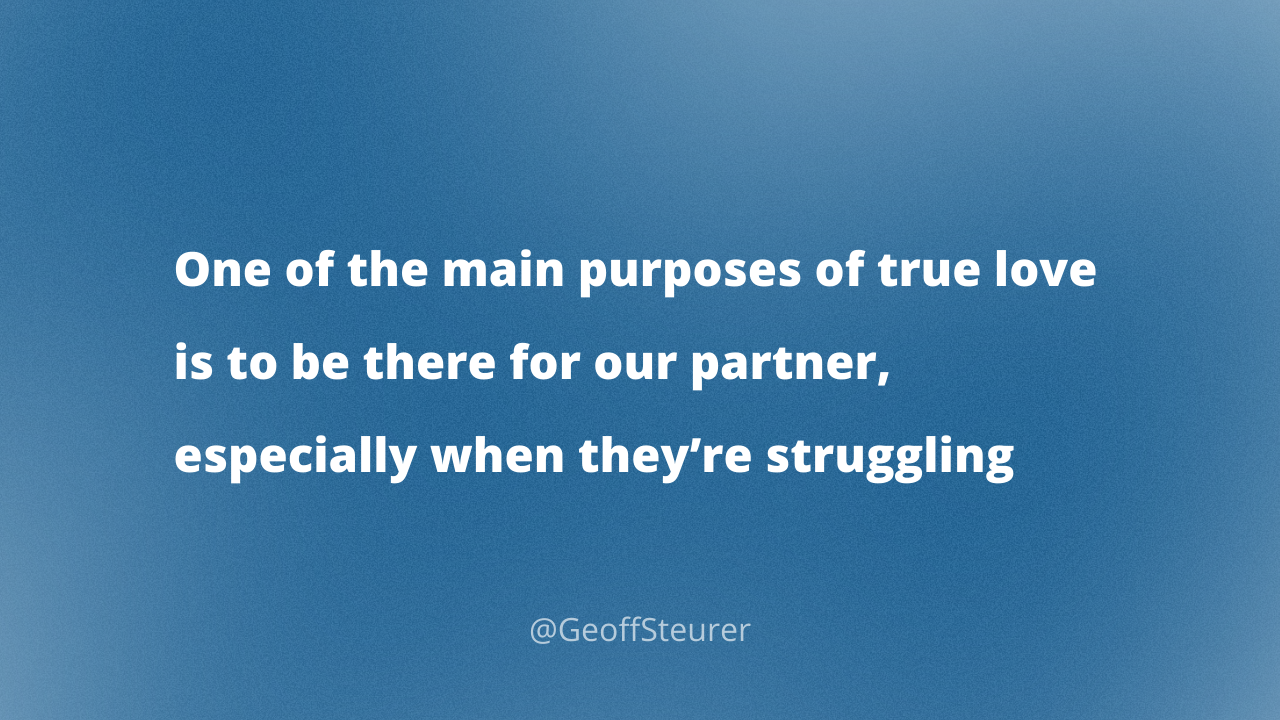
Q&A with Geoff: My wife’s childhood issues cause her to mistrust me
Question
My wife does not feel safe around me.
If I get angry when engaged in activities such as working on the car, fixing things around the house or dealing with technology, it triggers her. I have never gotten angry with her directly in 24 years of marriage (her words).
She was abused as a child by her brothers, and when they got angry, they found her and took it out on her. So my getting angry about anything triggers a physiological response in her which she has no control over. I can’t be perfect in my behavior, but I try my best to not get frustrated or angry.
It seems we are both walking on eggshells: me worried I will trigger her, and her worried she will be triggered.
Answer
I’m sorry to hear you’re both walking on eggshells as you try to figure out how to keep your emotional balance with each other. It’s got to be exhausting to live in an emotional minefield with constant worry that some unguarded word will send your marriage into a downward spiral. Let’s talk about some ways you can help improve this relational paralysis.
Childhood trauma can hold a marriage hostage without the proper support and treatment. I highly recommend you do everything you can to encourage your wife to get qualified help for the abuse she experienced in her home. Trauma survivors often feel broken as they react in ways they don’t desire or even understand.
Their suffering is often layered with emotions such as confusion, fear, guilt, self-blame, mistrust, anxiety and depression. Trauma is treatable and doesn’t have to be a life sentence. There are excellent treatment protocols such as EMDR, ART, Somatic Experiencing, and Lifespan Integration (to name a few).
It’s a delicate conversation, as she will likely feel more blamed and broken as you encourage her to get healing. Make sure you talk about trauma as something that unfairly happened to her instead of something she’s doing wrong. You can let her know you don’t blame her for the sensitivity and fear she’s experiencing.
You’re essentially externalizing the trauma as the problem instead of communicating that she’s the problem. Remove any barriers to her getting help. This includes financial, time and emotional support. Offer to attend with her to let her know you want to learn how to heal together.
Of course, continue doing everything you can to understand your own blind spots and how to reduce your own outbursts. This is good practice for living in a family. You want to be as emotionally healthy as possible, regardless of your wife’s triggers. In the meantime, recognize that her getting triggered doesn’t have to mean you lose connection with each other.
How do you respond to her when she becomes triggered? Do you become upset at her response? If not, does she respond well to you if you show empathy and compassion for the way these surprises impact her? While you obviously can’t predict or control her responses to you, the way you respond can extend understanding and comfort.
Couples who successfully stay connected in the presence of childhood trauma triggers unite against the trauma. They see the trauma as the problem, not each other. Ask her if you can work together to stay close in the face of these trauma triggers. Perhaps she can see that your efforts to reach to her in compassion and patience are a signal that you’re not a threat to her.
Perhaps she can have enough corrective experiences with you as you continue to invite her closer when she expects you to avoid her or push her away.
I recognize that you could be the safest and most careful man on the planet and your wife could still feel threatened by you. This is simply the tragic nature of unhealed childhood trauma. It breaks my heart to see so many earnest people pass through life believing they are broken beyond repair. I hope your wife can find healing and discover that she doesn’t have to live guarded and untrusting.
If she doesn’t respond to your invitation to join her in working through her childhood trauma, make sure you continue to take care of yourself emotionally. Build solid relationships with other men and family members who can remind you of your strengths. Find ways to make meaningful contributions in your family and community.
It’s easy to become isolated and disconnected from the truth about yourself and what you have to offer if your wife’s only response to you is suspicion and mistrust.
Sadly, this can create a new cycle of abuse that can erode your confidence.
Twenty-four years of love and support says a lot about your commitment to your wife. I hear your exasperation and confusion about what to do. I wish I could tell you when and if this will resolve. Just remember that one of the main purposes of true love is to be there for our partner, especially when they’re struggling.
As long as you’re not getting broken down or diminished as a human, you can be a tremendous source of emotional balance and strength for her as you patiently support her through this.



